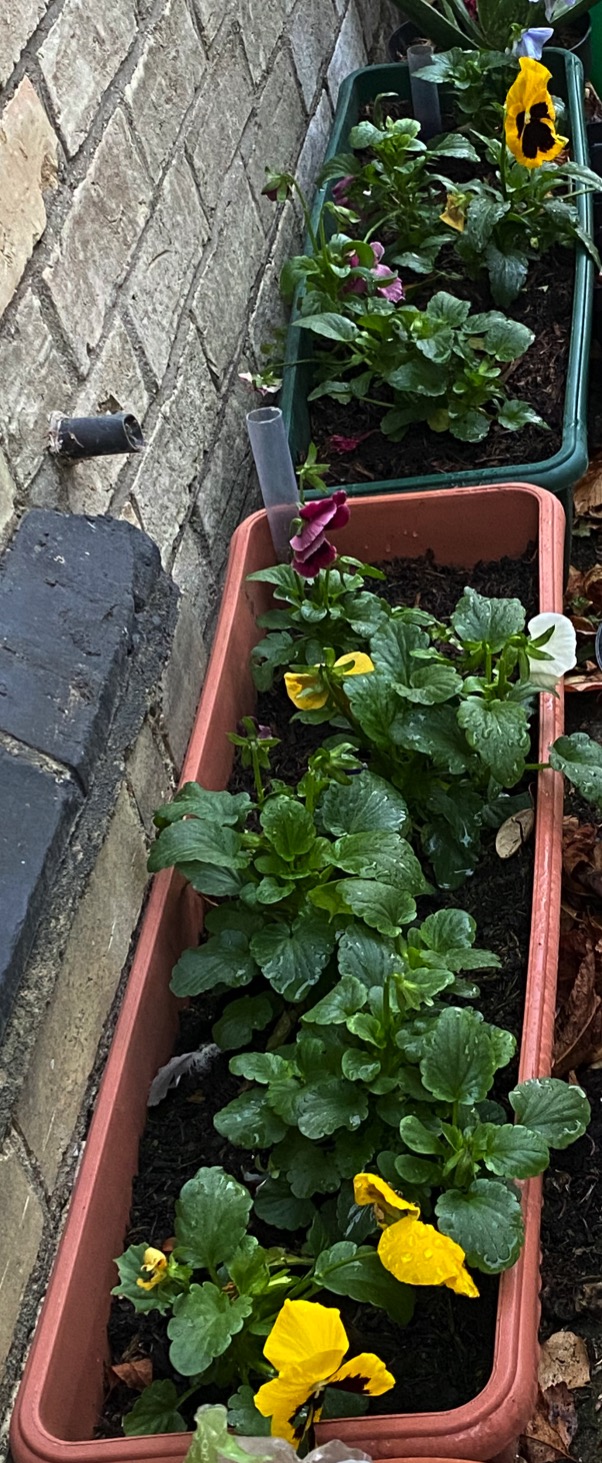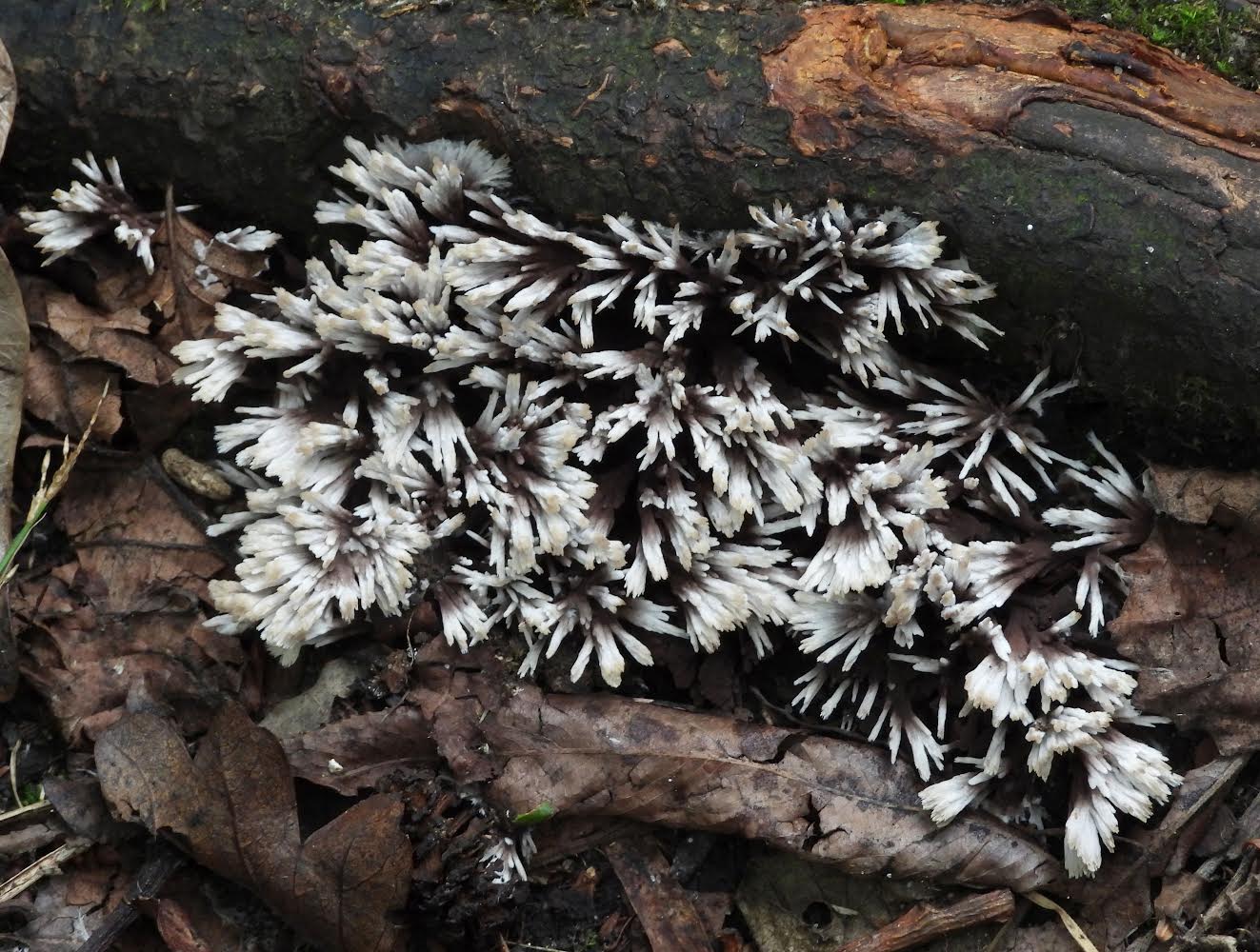I am a skilled negotiator.
You know how to strike a deal.
They are corrupt.
I am a skilled negotiator.
You know how to strike a deal.
They are corrupt.
See
https://en.m.wikipedia.org/wiki/Emotive_conjugation
Here’s an example that occurred to me.
I saw a sign that said, “Drink Canada Dry”. So I did.
I bought some fossil wood 100 million years old. It was Jurassic bark.
I wanted to brighten things up for the winter so I bought some pansies online. 20 plants ready to flower came beautifully packaged and with proper care they will be in bloom right through to April 2023. Here are some of them. Things need tidying a bit, so it's not a terrific photo, but you can see they are flourishing quite nicely.

I wondered where "pansy" came from so I did a bit of looking up and found it's from French pensée = thought, according to Wikipedia because it symbolised remembrance.
In the OED I found a nice quote from 1771
"On that fair bank a Pansy grew, That borrowed from indulgent skies A velvet shade and purple hue."
J. Langhorne Violet & Pansy in Fables of Flora 32
When I say
I’d go to the ends of the earth for you
I really mean with you
Nobody knew of
Our dance in the polling station
where they held the secret ballet
A website for people who want to brag about their holiday.
How many glottal stops are there in “bottle tops”?
Narwhal dentist. That’s an easy job.
Narwhals 1 - Humans ?
Had a Beef Wellington the other night. Bitterly disappointed. It was as tough as old boots.
One Day in the Life of Ivan Denisovich, by Solzhenitsyn, based on his experiences in a Soviet forced labour camp in the 1950s.
The most chilling quote so far
“Prisoners are not allowed clocks”.

Disaster’s bound to strike
Sooner or
A pelican goes into a bar and says, Can I pay for last night? The barman looks at him and says, You’ve got a massive bill.
A bad hangover leaves you confused the next day but a worse one lasts until the daze after tomorrow.
Seated in a chair, raise your right foot from the ground and start moving it in a clockwise circle. While continuing to move your right foot, extend your right for finger and draw a figure 6 in the air. What happens?
See here for a YouTube video about this surprising effect.
It appears on lots of web sites, often under the title 'How smart is your right foot?' but I hadn't come across it before.
I’m reading a book about blotting paper. Very absorbing.
I’ve just bought 12 baby polyanthus plants via Amazon. When they flower they will be an assortment of 6 colours and I’m assuming there will be 2 plants of each colour. But at the moment they all look pretty much the same.
I’m planning to give 4 plants to a friend. Given we will be picking the 4 at random…
What is the probability that my friend will receive 4 plants all different colours?

It’s very beautiful and resembles frost crystals, or perhaps some kind of mineral formation (although I suppose ice is a mineral, thinking about it). But what you see here is a fungus, the ‘urchin earthfan). My brother took the photograph.
There’s a good article about this fungus here
https://www.first-nature.com/fungi/thelephora-penicillata.php
What colour leaves you in the dark? Light blew.
Tonight when I paid my bar bill I held the card reader to my right nostril, and my Apple Watch to the left. Everything went through. So I literally paid through the nose.
New TV series about falconry. Britain’s got talons.
This blog might contain posts that are only visible to logged-in users, or where only logged-in users can comment. If you have an account on the system, please log in for full access.